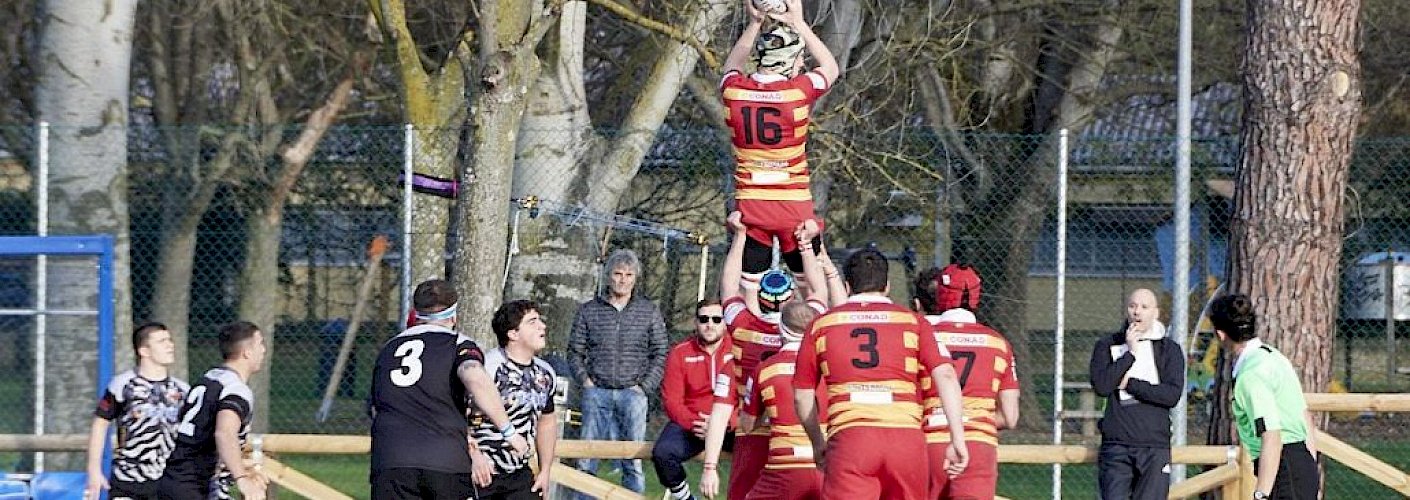Former National Coaching Development Manager for the RFU, and former Director of Rugby at Top 10 club, Rugby Colorno
Nick talked to us about his history in rugby and his new role at Pesaro Rugby

How did you first get into rugby?
I got into rugby about 50 years ago, I went to a normal comprehensive school and when I was young, I was football mad. Then one day a list went up on the board advertising to see if anybody wanted to play rugby, so I went along.
About 18 of us turned up and the teacher got as all to line up on the try line and got us to race to the halfway line, then he came up to us and to the fastest of us he said, “Right, you’re the Backs”, and to the slowest half he said, “Right, you're the forwards.” That was how I first got into rugby but unfortunately rugby didn't continue at that school beyond that year. In fact, it wasn't until I was about 14 years old that mini-rugby started at my local club, Newark, so I started to play down there with a good bunch of people and they helped me fall in love with rugby.
When did you first experience rugby in Italy?
I never actually played rugby in Italy but the first time I went out there was in around 2003 with a contact from the RFU. I went to a place called Viadana, I really enjoyed it there. They had a different culture, yet it was also very similar to back home. I think that wherever you go in the world, rugby clubs have certain characters within them, they may have different faces but these same characters are there within each club and it’s exactly the same in Italy.
What was that main difference?
Well, for example, I first went to Viadana in the summer. They had their own outdoor swimming pool and there was a big emphasis on the social side of rugby with families joining in. The importance of food and eating together and being together after games is central. The attention given to the food was important too.
In Italy, the post-match meal is called the Terzo Tempo (the third half), we have something similar in the UK but not to the extent that it exists in Italian rugby culture. For example, when I was coaching at Colorno, I was really gobsmacked with what I saw at youth rugby level. Two teams would play then after the game, all the tables would be set up and the home team would fetch the pasta that had been cooked in the kitchen and serve their opposition players food then sit down for a big meal together. The players will then clear up together and I thought all this was really fantastic.
And now, where are you coaching and what is your role?
I have now just taken a position at a rugby club in Pesaro. It's an ambitious club playing in Serie A, the second tier of rugby in Italy. The club has some players from the Under 18s national team and a good set up. My new role will involve developing coaches and players there, they also have an ambition to have an Adriatic Academy. The reason for this is that in Italy, rugby tends to be a northern game, with very little rugby played on the Adriatic Coast or in the south.
Previously, I lived in a place called Colorno in central Italy for three years. I had 18 absolutely fantastic and satisfying months there both professionally and personally but then covid came. I've been living between Italy and England since the pandemic started but now it's time for a new challenge and a different experience and it will be great to live in Pesaro, by the sea.
What about youth rugby in Italy?
I would say that at the better clubs, I see absolutely no difference between youth rugby in Italy and youth rugby in the UK. The results in the recent Six Nations at the under 18 and under 20 levels show that Italian youth rugby is very healthy and vibrant.
The major difference is that at 20 years old, having been in a very tight and well-run programme, Italian players leave the national programme and go to play in the Italian Top10. It’s not as professional as say going into the Saints or Leicester Tigers Academies, so there’s a bit of a black hole with development.
The other aspect, which might sound a bit strange, is that rugby in Italy is not covered very well by the TV channels. International matches are shown but not domestic rugby, this means there can be a lack of understanding and a lack of exposure to new players.
